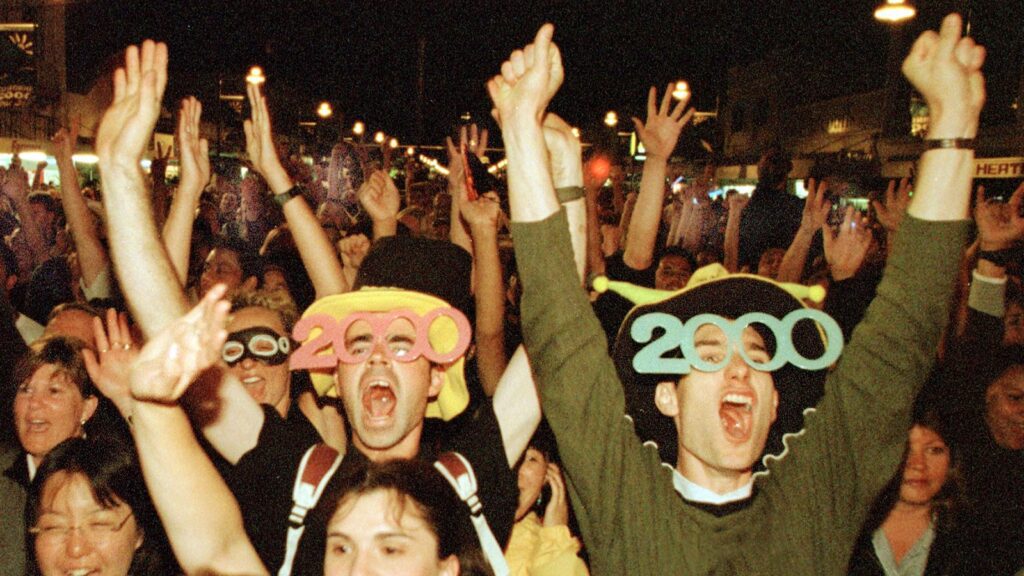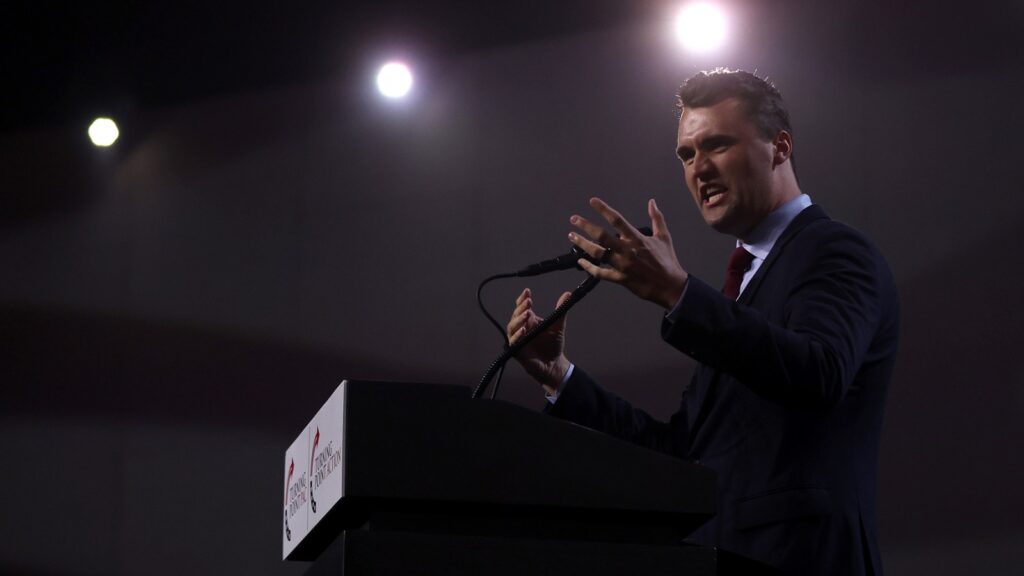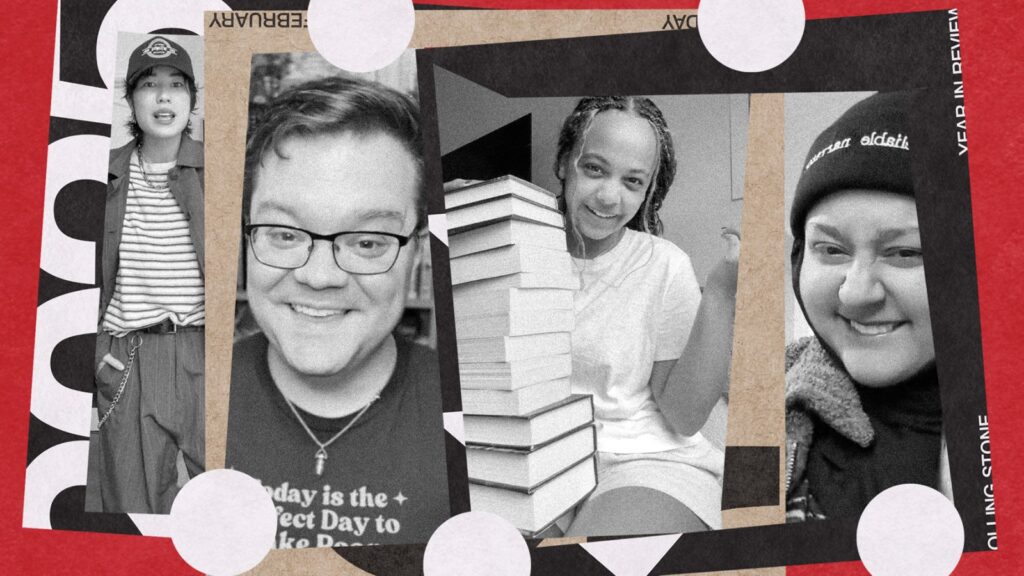The Internet Is About to Get Weird Again
It’s a dramatic, messy era on the internet. Everything is changing rapidly. There’s broad dissatisfaction with the dominant search engine, and activists are worried about the privacy implications of increasingly intrusive online surveillance. While investors prattle on about esoteric topics like digital currencies and virtual reality, back in the real world, users are concerned with how hard it is to message all their friends on the many different platforms that they’re using, and perhaps a bit curious about the new social networks that keep popping up. Amidst the backdrop of all this change, an off-putting nerd named Elon Musk won’t stop talking about an “everything app” called X that will help him manifest his extremist views. But more than anything, it is a time when the internet seems ripe for change, perhaps even being wide open to a new cohort of technologies and communities that could reshape the way it works. Millions of people seem poised to connect with each other in new ways, as they reconsider their fundamental relationship to technology.
The era I’m talking about is 2000. But it could just as easily be 2024, because this new year offers many echoes of a moment we haven’t seen in a quarter-century. Some of the most dominant companies on the internet are at risk of losing their relevance, and the rest of us are rethinking our daily habits in ways that will shift the digital landscape as we know it. Though the specifics are hard to predict, we can look to historical precedents to understand the changes that are about to come, and even to predict how regular internet users — not just the world’s tech tycoons — may be the ones who decide how it goes.
Across today’s internet, the stores that deliver all the apps on our phones are cracking open, the walls between social media platforms are coming down as the old networks fail, the headlong rush towards AI is making our search engines and work apps weirder (and often worse!). But amidst it all, the human web, the one made by regular people, is resurgent. We are about to see the biggest reshuffling of power on the internet in 25 years, in a way that most of the internet’s current users have never seen before. And while some of the drivers of this change have been hyped up, or even over-hyped, a few of the most important changes haven’t gotten any discussion at all.
The first thing to understand about this new era of the internet is that power is, undoubtedly, shifting. For example, regulators are now part of the story — an ironic shift for anyone who was around in the dot com days. In the E.U., tech giants like Apple are being forced to hold their noses and embrace mandated changes like opening up their devices to allow alternate app stores to provide apps to consumers. This could be good news, increasing consumer choice and possibly enabling different business models — how about mobile games that aren’t constantly pestering gamers for in-app purchases? Back in the U.S., a shocking judgment in Epic Games’ (that’s the Fortnite folks’) lawsuit against Google leaves us with the promise that Android phones might open up in a similar way.
That’s not just good news for the billions of people who own smartphones. It’s part of a sea change for the coders and designers who build the apps, sites, and games we all use. For an entire generation, the imagination of people making the web has been hemmed in by the control of a handful of giant companies that have had enormous control over things like search results, or app stores, or ad platforms, or payment systems. Going back to the more free-for-all nature of the Nineties internet could mean we see a proliferation of unexpected, strange new products and services. Back then, a lot of technology was created by local communities or people with a shared interest, and it was as likely that cool things would be invented by universities and non-profits and eccentric lone creators as they were to be made by giant corporations. Take the web browser itself — it was originally created by Tim Berners-Lee at a publicly-funded research laboratory, and the most popular early version was created at the University of Illinois. And as the web took off, individual creators often tested the limits of what their web browsers could do, with popular sites like Geocities letting millions of regular people build individual websites with wildly different (if often awful) aesthetics and designs.
In that era, people could even make their own little social networks, so the conversations and content you found on an online forum or discussion were as likely to have been hosted by the efforts of one lone creator than to have come from some giant corporate conglomerate. It was a more democratized internet, and while the world can’t return to that level of simplicity, we’re seeing signs of a modern revisiting of some of those ideas.
Consider the dramatic power shift happening right now in social media. Twitter’s slide into irrelevance and extremism as it decays into X has hastened the explosive growth of a whole host of newer social networks. There’s the nerdy vibes of the noncommercial Mastodon communities (each one with its own set of Dungeons and Dragons rules to play by), the raucous hedonism of Bluesky (like your old Tumblr timeline at its most scandalous), and the at-least-it’s-not-LinkedIn noisiness of Threads, brought to you by Instagram, meaning Facebook, meaning Meta. There are lots more, of course, and probably another new one popping up tomorrow, but that’s what’s great about it. A generation ago, we saw early social networks like LiveJournal and Xanga and Black Planet and Friendster and many others come and go, each finding their own specific audience and focus. For those who remember a time in the last century when things were less homogenous, and different geographic regions might have their own distinct music scenes or culinary traditions, it’s easy to understand the appeal of an online equivalent to different, connected neighborhoods that each have their own vibe. While this new, more diffuse set of social networks sometimes requires a little more tinkering to get started, they epitomize the complexity and multiplicity of the weirder and more open web that’s flourishing today.
What’s more, the people who had been quietly keeping the spirit of the human, personal, creative internet alive are seeing a resurgence now that the web is up for grabs again. Take someone like Everest Pipkin, an award-winning digital artist and activist who has been making games, videos, interactive sites, and video streams all exploring the boundaries of digital culture. They evoke the open-endedness of the Nineties internet, but with the modern sensibility that comes from someone who wasn’t even born when the web browser was first invented. Or check out the Society for Poetic Computation. It’s an eccentric, deeply charming, self-organized school for people who want to combine art and technology and a social conscience to make things that are completely different from the generic output of the trillion-dollar titans. Just one extraordinary example is Neta Bomani, one of the co-directors of the SFPC, whose unique and arresting digital works could never be built on the template of the last generation of homogenous social media tools. Then there’s Mask On Zone, a collaboration with the artist and coder Ritu Ghiya, which gives demonstrators and protesters in-context guidance on how to avoid surveillance before, during, and after attending a protest. And Bomani’s work often circles back to another staple of Nineties fan culture: printed zines. Often taking the form of workshops on zine-making, it’s an example of taking online culture back offline, showing young creators how their digital relationships inform real-world creativity now, just as it did a generation ago. It seems likely that nearly everyone’s daily digital diet will include some smattering of these kinds of wonderfully idiosyncratic creations, right alongside the latest memes on their For You page.
There are many more. Stefan Bohacek has been working for years to enable almost anyone to create simple, automated bots, offering up everything from a constantly-updated view of the weather at the South Pole to one that posts excerpts from the City of New York’s archives of civic data (here’s a map of every Latin cultural organization in the city!) to ones that post obscure and delightful images from the collections of museums around the world. That kind of creativity had been stifled as Twitter fell apart and other platforms like Reddit cracked down on independent developers, but the rise of new networks and alternative platforms has inspired a resurgence in these kinds of creations that hasn’t been seen since the early 2000s. Elan Kiderman Ullendorff has been exploring a similar space, encouraging people to “Escape the Algorithm” through a series of tools and websites which show regular internet users that another digital world is possible, with examples like “Youtune”, which lets users explore original songs that have been streamed very few times, helping you find music that might have been ignored by the algorithm but might still be worth hearing.
And then there’s someone like Darius Kazemi, a computer programmer and community organizer who has been patiently toiling away building tools that let others build healthy, constructive, human-scale online communities — the sort that are full of acts of kindness and genuine connection, instead of incessant fights about hate speech. There’s been a huge uptick in interest in Darius’ work as networks like Twitter have fallen apart, and a new generation discovers the joys of an internet that’s as intimate and connected as a friendly neighborhood. And this hearkens back to that surprising, and delightful, discovery that often underpinned the internet of a generation ago — sometimes the entire platform you were using to talk to others was just being run by one, passionate person. We’re seeing the biggest return to that human-run, personal-scale web that we’ve witnessed since the turn of the millennium, with enough momentum that it’s likely that 2024 is the first year since then that many people have the experience of making a new connection or seeing something go viral on a platform that’s being run by a regular person instead of a commercial entity. It’s going to make a lot of new things possible.
I’m not a pollyanna about the fact that there are still going to be lots of horrible things on the internet, and that too many of the tycoons who rule the tech industry are trying to make the bad things worse. (After all, look what the last wild era online lead to.) There’s not going to be some new killer app that displaces Google or Facebook or Twitter with a love-powered alternative. But that’s because there shouldn’t be. There should be lots of different, human-scale alternative experiences on the internet that offer up home-cooked, locally-grown, ethically-sourced, code-to-table alternatives to the factory-farmed junk food of the internet. And they should be weird.
Anil Dash is a tech entrepreneur and writer based in New York City. He was recognized by the Webby Awards with a lifetime achievement award in 2022.





